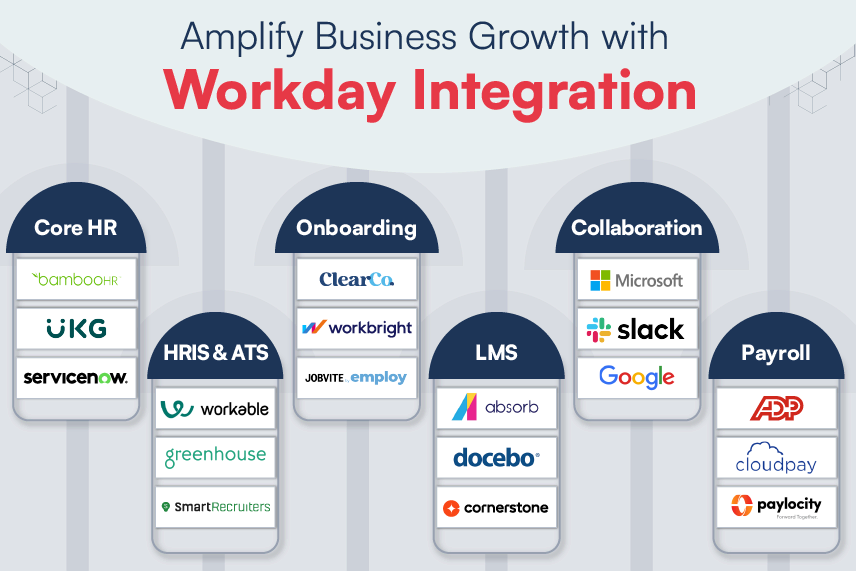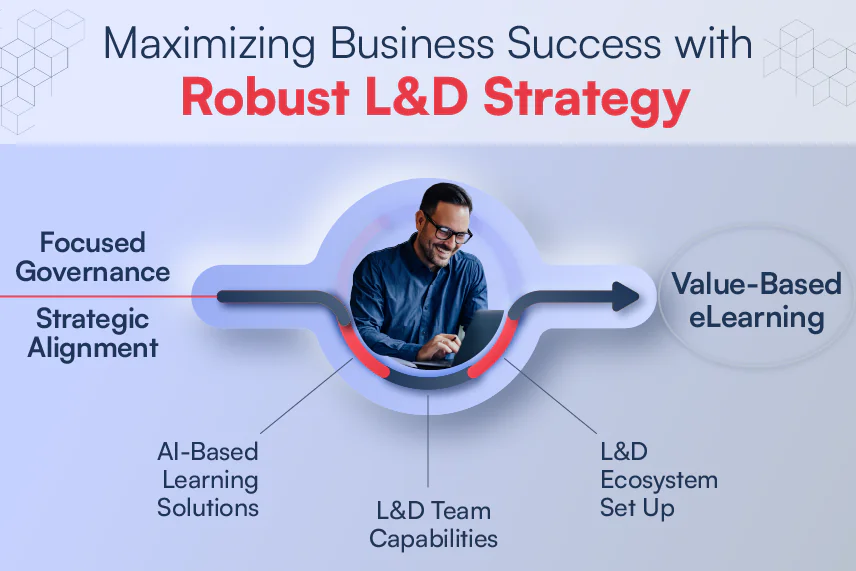
In today’s ever-evolving business landscape, Moodle integration plays a pivotal role in fostering continuous learning and development. Companies, irrespective of their industry, now recognize the importance of providing effective training and education for their teams.
Moodle, an open-source Learning Management System (LMS), offers remarkable and often underestimated capabilities that are a game-changer for organizations across various sectors. It empowers them to create tailored learning paths, nudge learners, and integrate their learning platforms with multiple tools while serving as valuable assets and differentiators.
Before we dive into how Moodle integration can be your company’s learning superhero, let’s understand some basics.
What is Moodle?
Moodle, short for Modular Object-Oriented Dynamic Learning Environment, is an open-source learning platform designed for online education and training. It was created by Martin Dougiamas in 2002 and has grown to become one of the most widely used LMS platforms globally.
What sets Moodle apart is its flexibility and adaptability, making it an ideal fit for various industries. Here’s a compilation of a few superpowers of this remarkable learning platform to give you a better idea.
- Open-Source Freedom: Moodle is open-source, meaning it’s free to use and can be shaped to fit your organization’s unique needs.
- Tailor-Made Learning: Moodle integration can be customized to match your brand, workflow, and learning objectives, making it uniquely yours.
- Growing with You: Whether you’re a small startup or a global corporation, Moodle can scale with your organization’s growth.
- Community Collaboration: Moodle integration encourages collaboration among learners through forums, wikis, and social learning tools, promoting knowledge sharing and interaction.
- Tool Integration: Moodle can seamlessly integrate with various third-party tools and systems, making it the central hub for all learning activities.
How Moodle Integration Benefits Different Business Sectors
Moodle integration offers an array of advantages to various business sectors, revolutionizing the way organizations train, educate, and collaborate. Let’s understand each of these advantages in brief.

Education Sector
- Crafting Personal Learning Journeys: In education, providing personalized learning is critical. Moodle integration lets educational institutions create tailored learning paths for each student. Whether designing specific courses, setting prerequisites, or providing adaptive assessments, Moodle empowers educators to meet each student’s unique needs.
- Boosting Engagement: To keep students engaged, Moodle offers interactive features like quizzes, forums, and multimedia content. These tools make learning dynamic, fostering interaction and active participation.
Healthcare Industry
- Meeting Compliance Needs: Healthcare organizations must adhere to strict regulations. Moodle integration streamlines compliance training by allowing specialized courses and progress tracking, ensuring everyone is up to date with the latest protocols.
- Lifelong Learning for Healthcare Professionals: For healthcare professionals, learning never stops. Moodle integration provides a platform for continuous training and certification programs, plus organizations can monitor staff progress, ensuring the highest quality of care.
Harness The Power Of Moodle Integration, Offering A Vast Array Of Options To Enhance Your eLearning Experience. Seamlessly Connect With Tools, CMS Platforms, Video Conferencing, And eCommerce Systems, Expanding Your LMS Capabilities. Maximize Insights With Learning Analytics And Simplify Content Management While Enriching The Learner's Journey, All Through Moodle's Versatile Integration Options.
Tech and IT Companies
- Flexibility in Skill Training: In the ever-evolving tech world, employees need to continually update their skills. Moodle’s flexibility allows tech companies to design and deliver courses on the latest technologies, keeping their workforce competitive.
- Integration with Developer Tools: For tech-savvy organizations, Moodle’s robust API and integration capabilities are game-changers. It seamlessly merges with developer tools, creating a streamlined learning experience with real-world coding exercises and projects.
Manufacturing: Where Safety Matters
- Effective Onboarding and Safety Training: Manufacturing relies on efficient and safe practices. Moodle integration simplifies onboarding with customizable training modules, ensuring new hires get up to speed quickly and safely.
- Equipment Expertise: In manufacturing, knowledge about equipment operation and maintenance is critical. Moodle can host detailed training courses with multimedia content and assessments, creating equipment experts within your organization.

Moodle Integration: Helping Businesses Enable Nudge-Learning and Personalization
Moodle integration emerges as a powerful tool, offering businesses the capability to facilitate nudge-learning and personalization like never before. Here’s how this integration helps organizations create a lasting impact.
- Giving Learning a Nudge: Moodle incorporates the concept of nudge learning and personalization, gently encouraging learners to engage with course materials and complete tasks. Features like progress tracking, reminders, and notifications keep learners on track, ensuring they make consistent progress.
- Personalization for Maximum Impact: Moodle’s adaptive learning capabilities allow organizations to create personalized learning paths based on each learner’s progress and performance. It can suggest relevant courses and materials, leading to more effective learning outcomes.
- Enable Learning in The Flow of Work: Harbinger’s nudge-learning application, SprinkleZone, can be integrated with Moodle to deliver small chunks of knowledge or microlearning courses. When using SprinkleZone, a learner receives self-paced learning materials in the form of a microlearning course. The learning process is designed to happen in the flow of work while keeping the learners actively engaged.
15 Remarkable Moodle LMS Features
Moodle isn’t just a learning platform; it brings in a comprehensive suite of features that can cater to the unique needs of various industries.
1. Gamification Elements
Moodle integration offers gamification features such as badges, leaderboards, and certificates, making learning more engaging and motivating for users. These elements can be incorporated within the courses to reward achievements, boosting learner participation and competition.
2. Mobile Learning Compatibility
In today’s mobile-centric world, Moodle supports mobile learning. It’s responsive and adaptable to various screen sizes, allowing learners to access content on their smartphones and tablets. This flexibility enables continuous learning, even on the go.
3. Reporting and Analytics
Moodle’s reporting and analytics tools provide valuable insights into learner performance and course effectiveness. You can track learner progress, assess the impact of your training programs, and make data-driven decisions for improvements.
4. Multilingual Support
For global organizations or those serving diverse language communities, Moodle integration offers robust multilingual support. You can deliver content in multiple languages, ensuring inclusivity and accessibility for a broader audience.
5. Content Management
Creating and managing content within Moodle is hassle-free. Its built-in content management system allows instructors to easily upload and organize course materials, reducing the time and effort required for content preparation.
6. Assessment and Quiz Building
Moodle integration provides a range of assessment tools, including customizable quizzes, surveys, and assignments. Instructors can create various question types, set grading criteria, and offer instant feedback to learners, enhancing the assessment process.
7. Advanced Communication Tools
Moodle integration fosters interaction through various communication tools like discussion forums, live chats, and messaging systems. These features promote learner engagement, collaboration, and knowledge sharing.
8. Secure User Authentication
Data security is paramount in eLearning. Moodle offers robust user authentication options, including single sign-on (SSO) and integration with LDAP, ensuring secure access for authorized users.
9. Content Restriction and Access Control
Moodle allows instructors to control when and how content is accessed. You can set course prerequisites, restrict access based on completion criteria, or schedule content releases, providing a structured learning experience.
10. User Roles and Permissions
Moodle integration supports a role-based user management system, allowing administrators to define roles with specific permissions. This granular control ensures that the right users have the appropriate access to resources and features.
11. Assessment Analytics
In addition to reporting, Moodle offers assessment analytics, which helps identify trends and patterns in learner performance. These insights can be used to refine course materials and assessments for optimal learning outcomes.
12. Accessibility Compliance
Moodle is designed with accessibility in mind, adhering to international standards like WCAG. This ensures learners with disabilities can access and engage with course content, promoting inclusivity.
13. Offline Learning Options
In scenarios where internet connectivity is limited, Moodle’s offline learning options come to the rescue. Learners can download and access course materials without an internet connection, enhancing accessibility.
14. Personalized Dashboards
Moodle integration provides personalized dashboards for each user, displaying relevant courses, notifications, and progress tracking. This customization simplifies the learning experience, helping learners focus on what matters most.
15. Continuous Updates and Community Support
Being open source, Moodle benefits from a vast community of developers and users. This results in frequent updates, security patches, and a wealth of community support, ensuring that your Moodle installation remains up-to-date and well-maintained.
Moodle Integration: Extending LMS Capabilities with Cutting-Edge Tools

One of Moodle’s incredible strengths is its ability to integrate with a range of third-party tools and systems. This enhances the learning experience and extends the platform’s capabilities. Some noteworthy integrations include:
- Learning Analytics: Moodle can merge with analytics tools, offering insights into learner behavior and performance.
- Content Management Systems (CMS): Integration with CMS platforms like WordPress and Drupal makes creating and managing content a breeze.
- Video Conferencing: With integrations like Zoom and BigBlueButton, Moodle enables live virtual classrooms and webinars, enhancing remote learning.
- eCommerce Platforms: For organizations selling courses and training materials, integrating with eCommerce platforms simplifies payment processing and enrollment.
Moodle Integration: 7 Advantages of Multitenancy with IOMAD
Moodle’s potential goes even further with Installation Object Module Academic Distribution (IOMAD), a multitenancy extension designed for academic institutions and organizations.
The combination of Moodle and IOMAD can elevate your organization’s brand by enabling customized branding and themes for each entity, reinforcing their unique identities. It empowers data-driven decision-making with advanced reporting and analytics while ensuring compliance with industry-specific regulations.
1. Streamlined Administration
For organizations with multiple branches or subsidiaries, managing separate Moodle installations for each entity can be a logistical nightmare. IOMAD simplifies this by centralizing the administration, allowing you to oversee all entities from a single point of control. This streamlines user management, course creation, and content distribution, reducing administrative overhead.
2. Customized Branding
Each company or institution created within IOMAD can have its own branding, logo, and theme. This level of customization ensures that learners from different entities experience a consistent and personalized interface, reinforcing the unique identity of each organization.
3. Separate Course Catalogs
With IOMAD, you can maintain separate course catalogs for each entity while benefiting from the centralized Moodle integration infrastructure. This means you can tailor course offerings to meet the specific needs of each company or institution, ensuring that learning content remains relevant and effective.
4. Secure Data Segmentation
In industries where data privacy and security are paramount, IOMAD provides a robust solution. Data for each entity is logically separated and secured, ensuring that learners’ information remains confidential and complies with industry-specific regulations and standards.
5. Reporting and Analytics
IOMAD offers advanced reporting and analytics capabilities that allow you to gain insights into the performance and progress of each entity. This data-driven approach empowers organizations to make informed decisions about course improvements, resource allocation, and overall learning strategy.
6. Scalability
As organizations grow and expand, IOMAD scales effortlessly. New companies or institutions can be added to the existing Moodle integration infrastructure with ease, ensuring that the learning platform remains agile and adaptable to evolving business needs.
7. Cost-Efficiency
Organizations can realize significant cost savings by consolidating multiple entities onto a single Moodle installation through IOMAD. They can avoid the overhead of maintaining and managing separate LMS installations for each branch or subsidiary.
Explore Moodle Integration with Harbinger
It’s time to recognize and embrace the hidden power of Moodle integration, along with the multitenancy capabilities of IOMAD, as your secret weapon for learning across sectors and industries. Whether you’re in education, healthcare, tech, manufacturing, or beyond, this dynamic duo has the potential to be your learning game-changer.
Harbinger possesses significant expertise in developing personalized LMS with Moodle IOMAD, providing clients with tailor-made solutions that seamlessly integrate with their tools and systems.
Our expertise with multitenancy in Moodle helps streamline administration and lowers costs while continuous support and maintenance ensure a hassle-free client experience. We prioritize data security and compliance, safeguarding learner data and related confidential information. Plus, our scalable solutions adapt as your organization grows.
Discover how Harbinger designed and developed a Moodle-based eLearning app to help a premier provider of curated online learning programs enable multitenancy and concurrent user support.
End Note
Moodle is a learning superhero often underestimated in its impact. It’s a versatile and robust LMS that can transform learning across industries. With Moodle integration and IOMAD, you can create personalized learning paths, nudge learners toward success, and integrate learning platforms with an array of tools while efficiently managing multiple entities.
Companies that harness the capabilities of Moodle integration gain a competitive edge. They foster continuous learning, ensure compliance, adapt to industry demands, and make data-driven improvements.
Want to design and develop a custom Moodle LMS with IOMAD implementation? Reach out to us at contact@harbingergroup.com. Our EdTech experts will be glad to help you achieve your business goals.






